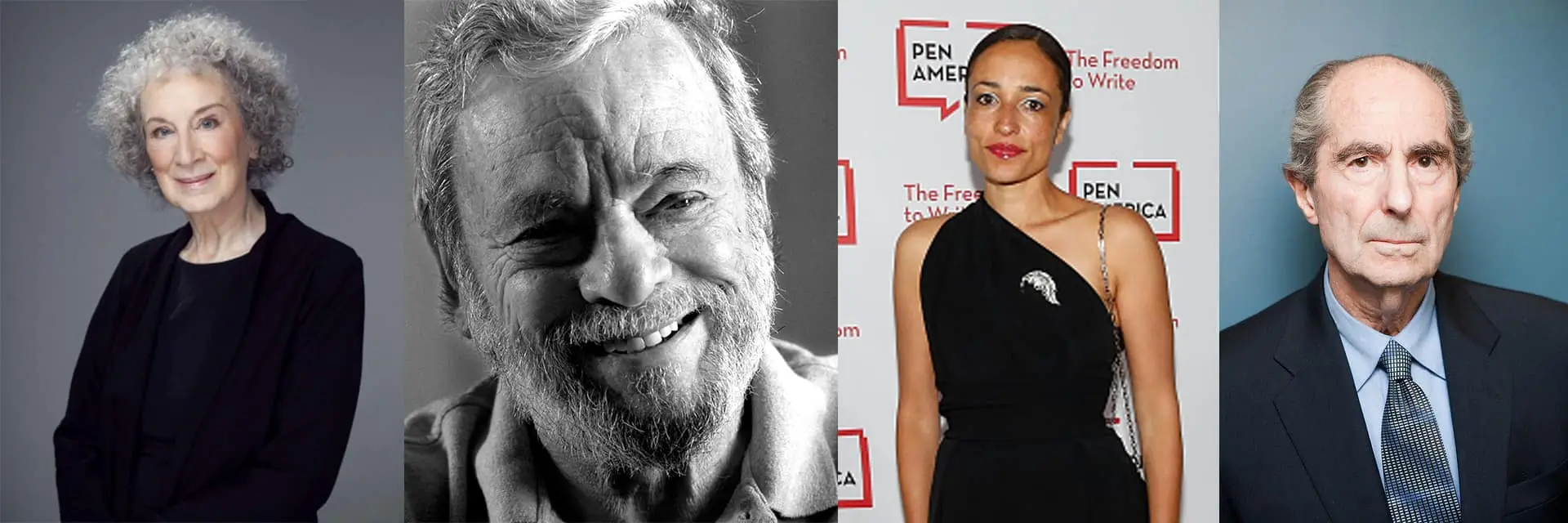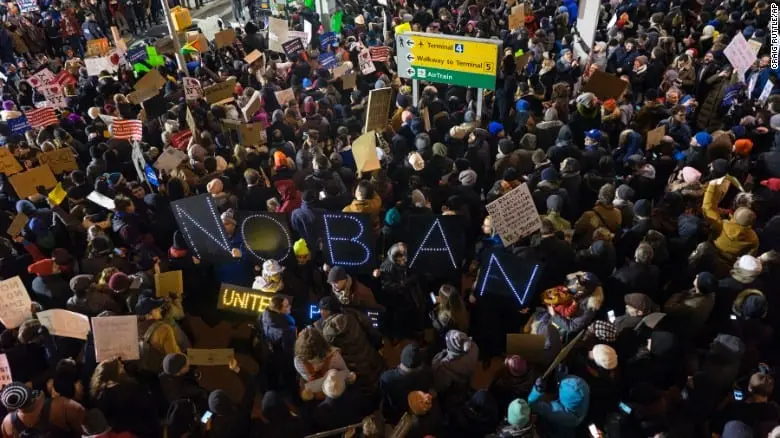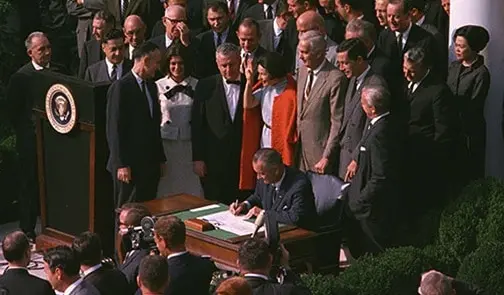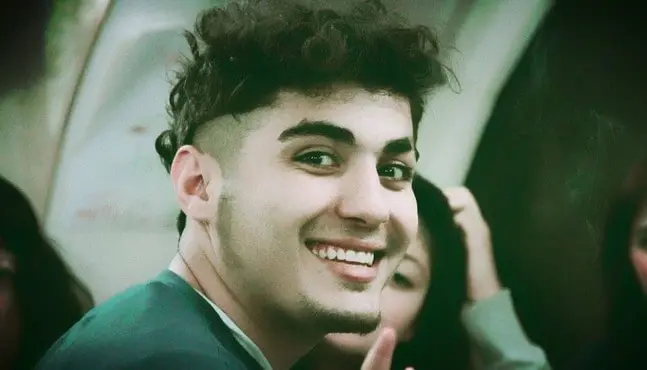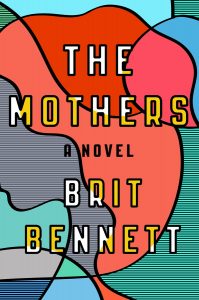 Brit Bennett’s The Mothers is a finalist for the 2017 PEN/Robert W. Bingham Prize for Debut Fiction. The following is an excerpt from the novel.
Brit Bennett’s The Mothers is a finalist for the 2017 PEN/Robert W. Bingham Prize for Debut Fiction. The following is an excerpt from the novel.
ONE
We didn’t believe when we first heard because you know how church folk can gossip.
Like the time we all thought First John, our head usher, was messing around on his wife because Betty, the pastor’s secretary, caught him cozying up at brunch with another woman. A young, fashionable woman at that, one who switched her hips when she walked even though she had no business switching anything in front of a man married forty years. You could forgive a man for stepping out on his wife once, but to romance that young woman over buttered croissants at a sidewalk café? Now, that was a whole other thing. But before we could correct First John, he showed up at Upper Room Chapel that Sunday with his wife and the young, hip-switching woman—a great-niece visiting from Fort Worth—and that was that.
When we first heard, we thought it might be that type of secret, although, we have to admit, it had felt different. Tasted different too. All good secrets have a taste before you tell them, and if we’d taken a moment to swish this one around our mouths, we might have noticed the sourness of an unripe secret, plucked too soon, stolen and passed around before its season. But we didn’t. We shared this sour secret, a secret that began the spring Nadia Turner got knocked up by the pastor’s son and went to the abortion clinic downtown to take care of it.
She was seventeen then. She lived with her father, a Marine, and without her mother, who had killed herself six months earlier. Since then, the girl had earned a wild reputation—she was young and scared and trying to hide her scared in her prettiness. And she was pretty, beautiful even, with amber skin, silky long hair, and eyes swirled brown and gray and gold. Like most girls, she’d already learned that pretty exposes you and pretty hides you and like most girls, she hadn’t yet learned how to navigate the difference. So we heard all about her sojourns across the border to dance clubs in Tijuana, the water bottle she carried around Oceanside High filled with vodka, the Saturdays she spent on base playing pool with Marines, nights that ended with her heels pressed against some man’s foggy window. Just tales, maybe, except for one we now know is true: she spent her senior year of high school rolling around in bed with Luke Sheppard and come springtime, his baby was growing inside her.
Luke Sheppard waited tables at Fat Charlie’s Seafood Shack, a restaurant off the pier known for its fresh food, live music, and family-friendly atmosphere. At least that’s what the ad in the San Diego Union-Tribune said, if you were fool enough to believe it. If you’d been around Oceanside long enough, you’d know that the promised fresh food was day-old fish and chips stewing under heat lamps, and the live music, when delivered, usually consisted of ragtag teenagers in ripped jeans with safety pins poking through their lips. Nadia Turner also knew things about Fat Charlie’s that didn’t fit on a newspaper ad, like the fact that a platter of Charlie’s Cheesy Nachos was the perfect drunk snack or that the head cook sold the best weed north of the border. She knew that inside, yellow life preservers hung above the bar, so after long shifts, the three black waiters called it a slave ship. She knew secret things about Fat Charlie’s because Luke had told her.
“What about the fish sticks?” she would ask.
“Soggy as shit.”
“The seafood pasta?”
“Don’t fuck with that.”
“What could be so bad about pasta?”
“You know how they make that shit? Take some fish that’s been sitting around and stuff it in ravioli.”
“Fine, the bread, then.”
“If you don’t finish your bread, we just give it to another table. You about to touch the same bread as some dude that’s been digging in his nuts all day.”
The winter her mother killed herself, Luke saved Nadia from ordering the crab bites. (Imitation crab deep-fried in lard.) She’d begun disappearing after school, riding buses and hopping off wherever they took her. Sometimes she rode east to Camp Pendleton, where she watched a movie or bowled at Stars and Strikes or played pool with Marines. The young ones were the loneliest, so she always found a pack of privates, awkward with their shorn heads and big boots, and by the end of the night, she usually ended up kissing one of them until kissing made her feel like crying. Other days she rode north, past Upper Room Chapel, where the coast became frontier. South, and she hit more beach, better beaches, beaches with sand as white as the people who lay on it, beaches with boardwalks and roller coasters, beaches behind gates. She couldn’t ride west. West was the ocean.
She rode buses away from her old life, where after school, she’d lingered with her friends in the parking lot before driver’s ed or climbed the bleachers to watch the football team practice or caravanned to In‑N‑Out. She’d goofed around at Jojo’s Juicery with her coworkers and danced at bonfires and climbed the jetty when dared because she always pretended to be unafraid. She was startled by how rarely she had been alone back then. Her days felt like being handed from person to person like a baton, her calculus teacher passing her to her Spanish teacher to her chemistry teacher to her friends and back home to her parents. Then one day, her mother’s hand was gone and she’d fallen, clattering to the floor.
She couldn’t stand to be around anyone now—her teachers, who excused her late work with patient smiles; her friends, who stopped joking when she sat down at lunch, as if their happiness were offensive to her. In AP Government, when Mr. Thomas assigned partner work, her friends quickly paired off with each other, and she was left to work with the other quiet, friendless girl in the class: Aubrey Evans, who skirted off to Christian Club meetings at lunch, not to pad her college resume (she hadn’t raised her hand when Mr. Thomas asked who had turned in applications) but because she thought God cared if she spent her free period inside a classroom planning canned food drives. Aubrey Evans, who wore a plain gold purity ring that she twisted around her finger when she talked, who always attended service at Upper Room by herself, probably the poor holy child of devout atheists who was working hard to lead them into the light. After their first time working together, Aubrey had leaned closer to her, dropping her voice.
“I just wanted to say I’m sorry,” she said. “We’ve all been praying for you.”
She seemed sincere, but what did that matter? Nadia hadn’t been to church since her mother’s funeral. Instead, she rode buses. One afternoon, she climbed off downtown in front of the Hanky Panky. She was certain someone would stop her—she even looked like a kid with her backpack—the bouncer perched on a stool near the door barely glanced up from his phone when she ducked inside. At three on a Tuesday, the strip club was dead, empty silver tables dulled under the stage lights. Black shades pulled in front of the windows blocked the plastic sunlight; in the man-made darkness, fat white men with baseball caps pulled low slouched in chairs facing the stage. Under the spotlight, a flabby white girl danced, her breasts swinging like pendulums.
In the darkness of the club, you could be alone with your grief. Her father had flung himself into Upper Room. He went to both services on Sunday mornings, to Wednesday night Bible study, to Thursday night choir practice although he did not sing, although practices were closed but nobody had the heart to turn him away. Her father propped his sadness on a pew, but she put her sad in places no one could see. The bartender shrugged at her fake ID and mixed her a drink and she sat in dark corners, sipping rum-and-Cokes and watching women with beat bodies spin onstage. Never the skinny, young girls—the club saved them for weekends or nights—just older women thinking about grocery lists and child care, their bodies stretched and pitted from age. Her mother would’ve been horrified at the thought—her in a strip club, in the light of day—but Nadia stayed, sipping the watery drinks slowly. Her third time in the club, an old black man pulled up a chair beside her. He wore a red plaid shirt under suspenders, gray tufts peeking out from under his Pacific Coast Bait & Tackle cap.
“What you drinkin’?” he asked.
“What’re you drinking?” she said.
He laughed. “Naw. This a grown man drink. Not for a little thing like you. I’ll get you somethin’ sweet. You like that, honey? You look like you got a sweet tooth.”
He smiled and slid a hand onto her thigh. His fingernails curled dark and long against her jeans. Before she could move, a black woman in her forties wearing a glittery magenta bra and thong appeared at the table. Light brown streaked across her stomach like tiger stripes.
“You leave her be, Lester,” the woman said. Then to Nadia: “Come on, I’ll freshen you up.”
“Aw, Cici, I was just talkin’ to her,” the old man said.
“Please,” Cici said. “That child ain’t even as old as your watch.”
She led Nadia back to the bar and tossed what was left of her drink down the drain. Then she slipped into a white coat and beckoned for Nadia to follow her outside. Against the slate gray sky, the flat outline of the Hanky Panky seemed even more depressing. Further along the building, two white girls were smoking and they each threw up a hand when Cici and Nadia stepped outside. Cici returned the lazy greeting and lit a cigarette.
“You got a nice face,” Cici said. “Those your real eyes? You mixed?”
“No,” she said. “I mean, they’re my eyes but I’m not mixed.”
“Look mixed to me.” Cici blew a sideways stream of smoke. “You a runaway? Oh, don’t look at me like that. I won’t report you. I see you girls come through here all the time, looking to make a little money. Ain’t legal but Bernie don’t mind. Bernie’ll give you a little stage time, see what you can do. Don’t expect no warm welcome, though. Hard enough fighting those blonde bitches for tips—wait till the girls see your light-bright ass.”
“I don’t want to dance,” Nadia said.
“Well, I don’t know what you’re looking for but you ain’t gonna find it here.” Cici leaned in closer. “You know you got see-through eyes? Feels like I can see right through them. Nothin’ but sad on the other side.” She dug into her pocket and pulled out a handful of crumpled ones. “This ain’t no place for you. Go on down to Fat Charlie’s and get you something to eat. Go on.”
Nadia hesitated, but Cici dropped the bills into Nadia’s palm and curled her fingers into a fist. Maybe she could do this, pretend she was a runaway, or maybe in a way, she was. Her father never asked where she’d been. She returned home at night and found him in his recliner, watching television in a darkened living room. He always looked surprised when she unlocked the front door, like he hadn’t even noticed that she’d been gone.
In Fat Charlie’s, Nadia had been sitting in a booth toward the back, flipping through a menu, when Luke Sheppard stepped out of the kitchen, white apron slung across his hips, black Fat Charlie’s T‑shirt stretched across his muscular chest. He looked as handsome as she’d remembered from Sunday School, except he was a man now, bronzed and broad-shouldered, his hard jaw covered in stubble. And he was limping now, slightly favoring his left leg, but the gimpiness of his walk, its uneven pace and tenderness, only made her want him more. Her mother had died a month ago and she was drawn to anyone who wore their pain outwardly, the way she couldn’t. She hadn’t even cried at the funeral. At the repast, a parade of guests had told her how well she’d done and her father placed an arm around her shoulder. He’d hunched over the pew during the service, his shoulders quietly shaking, manly crying but crying still, and for the first time, she’d wondered if she might be stronger than him.
An inside hurt was supposed to stay inside. How strange it must be to hurt in an outside way you couldn’t hide. She played with the menu flap as Luke limped his way over to her booth. She, and everyone at Upper Room, had watched his promising sophomore season end last year. A routine kick return, a bad tackle, and his leg broke, the bone cutting clear through the skin. The commentators had said he’d be lucky if he walked normal again, let alone played another down, so no one had been surprised when San Diego State pulled his scholarship. But she hadn’t seen Luke since he’d gotten out of the hospital. In her mind, he was still in a cot, surrounded by doting nurses, his bandaged leg propped toward the ceiling.
“What’re you doing here?” she asked.
“I work here,” he said, then laughed, but his laugh sounded hard, like a chair suddenly scraped against the floor. “How you been?”
He didn’t look at her, shuffling through his notepad, so she knew he’d heard about her mother.
“I’m hungry,” she said.
“That’s how you been? Hungry?”
“Can I get the crab bites?”
“You better not.” He guided her finger down the laminated menu to the nachos. “There. Try that.”
His hand curved soft over hers like he was teaching her to read, moving her finger under unfamiliar words. He always made her feel impossibly young, like two days later, when she returned to his section and tried to order a margarita. He laughed, tilting her fake ID toward him.
“Come on,” he said. “Aren’t you, like, twelve?”
She narrowed her eyes. “Oh fuck you,” she said, “I’m seventeen.”
But she’d said it a little too proudly and Luke laughed again. Even eighteen—which she wouldn’t turn until late August—would seem young to him. She was still in high school. He was twenty-one and had already gone to college, a real university, not the community college where everyone loafed around a few months after graduation before finding jobs. She had applied to five universities and while she waited to hear back, she asked Luke questions about college life, like were dorm showers as gross as she imagined and did people actually stick socks on door handles when they wanted privacy? He told her about undie runs and foam parties, how to maximize your meal plan, how to get extra time on tests by pretending you had a learning problem. He knew things and he knew girls, college girls, girls who wore high heels to class, not sneakers, and carried satchels instead of backpacks, and spent their summers interning at Qualcomm or California Bank & Trust, not making juice at the pier. She imagined herself in college, one of those sophisticated girls, Luke driving to see her, or if she went out of state, flying to visit her over spring break. He would laugh if he knew how she imagined him in her life. He teased her often, like when she began doing her homework in Fat Charlie’s.
“Shit,” he said, flipping through her calculus book. “You a nerd.”
She wasn’t, really, but learning came easily to her. (Her mother used to tease her about that—must be nice, she’d say, when Nadia brought home an aced test she only studied for the night before.) She thought her advanced classes might scare Luke off, but he liked that she was smart. See this girl right here, he’d tell a passing waiter, first black lady president, just watch. Every black girl who was even slightly gifted was told this. But she liked listening to Luke brag and she liked it even more when he teased her for studying. He didn’t treat her like everyone at school, who either sidestepped her or spoke to her like she was some fragile thing one harsh word away from breaking.
One February night, Luke drove her home and she invited him inside. Her father was gone for the weekend at the Men’s Advance, so the house was dark and silent when they arrived. She wanted to offer Luke a drink—that’s what women did in the movies, handed a man a boxy glass, filled with something dark and masculine—but moonlight glinted off glass cabinets emptied of liquor and Luke pressed her against the wall and kissed her. She hadn’t told him it was her first time but he knew. In her bed, he asked three times if she wanted to stop. Each time she told him no. Sex would hurt and she wanted it to. She wanted Luke to be her outside hurt.
This excerpt is taken from The Mothers by Brit Bennett, published by arrangement with Riverhead Books, an imprint of Penguin Publishing Group, a division of Penguin Random House LLC. Copyright © 2016 by Brit Bennett.
